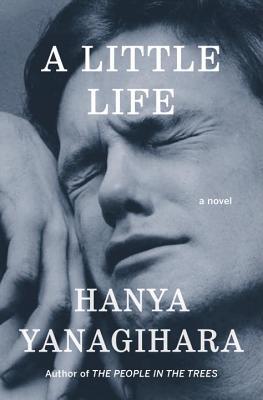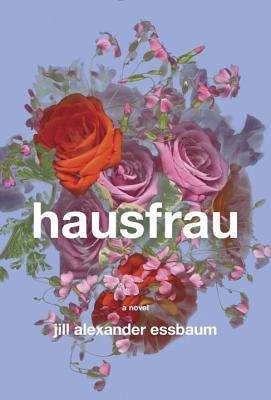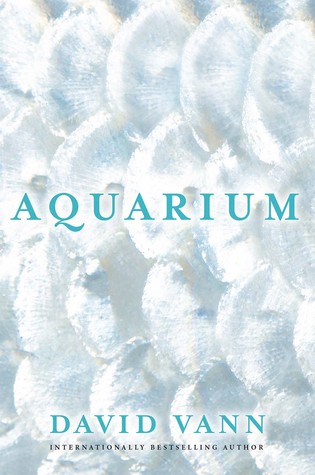A Little Life by Hanya Yanagihara*
To be perfectly honest, I don't know very many people who will take on A Little Life, fewer still who will finish it. It's big, and the face on the cover isn't exactly selling a happy ending. Midway through the 720 page book, fully 350 pages of serious investment, the reader has already endured what could be a full-length novel, chock-full of anguish, with another 370 pages to go. You might look up, completely exhausted at this point, and say to yourself "I don't think I can go on" much like the marathon runner at mile 18, or Jude St. Francis, the central character of Yanagihara's beautiful and painful epic second novel. "...but I have to know what happens" whispers the undaunted reader, and dives right back in. Readers will be so emotionally connected to Jude, and by page 350 so completely in love with him, that they will soldier on and reap the rewards, for this is a beautiful and terrible saga about friendship and secrets. Dark and deeply upsetting, Jude's tormented past is gradually revealed as his adult life is profoundly affected at every stage by both physical and emotional scars. While the book ostensibly centers on the adult lives of four friends living in New York City, the character we come to know inside and out is Jude, the trauma he has suffered, and how that trauma affects his adult relationships.
The author will push readers to their limits; she is bringing truth, and the truth hurts. Brutal? Yes. Difficult? Disturbing? Oh, yes. Challenging? Yes, indeed, and very worth your while.
* Loyal blog readers may recall that Hanya Yanagihara's debut novel, The People in the Trees, was nominated for a 2015 IMPAC Dublin Literary Award by none other than us, your Richmond Public Library bloggers/book nominators, so we might be a little partial to her work. Sadly, she did not make their shortlist this time but I expect to see big things for her in the future. Keep an eye on the blog for our 2016 nominations coming soon!
The Narrow Road to the Deep North by Richard Flanagan
A recommendation for this book might have to come with a disclaimer about graphic content: Read only with a strong stomach for graphic, clinical descriptions of the physical horrors wrought by torture, lack of clean water and sanitation, and starvation. Especially starvation. I have to admit, as have other reviewers, that the surgery scene (you'll know what I'm referring to when you get there) had me skimming ahead with one eye closed. Oh boy, does this Man Booker prize-winning, short-listed for just about everything (including the aforementioned IMPAC award), novel get vivid. Dorrigo Evans is an Australian doctor and survivor of the Thailand Burma Death Railway POW camp haunted by a love affair with his uncle's wife. The novel moves around in time and perspective, shifting between narratives of survivor and captor. Beautiful, complex, and utterly horrific, this is a love story as much as it is a war story, and a fine example of detailed character study. Flanagan's actors are authentic, complicated, and flawed, and you will feel for each and every one of them. Read it, just maybe don't read it right before going to bed.
Hausfrau, which is the German word for housewife, is the narrative of Anna Benz, American ex-pat, wife of Otto Benz, mother to three children, and serial cheater. Anna Benz is not a likable character. In fact, she's so unimprinted upon she's barely a character at all. However, one does not read literary fiction for likable characters. What one does look for in literary characters is depth, purpose, and truth, even if the character is a shallow, feckless liar. Anna is the physical manifestation of ennui. She leaves a trail of it in her wake, glimmering like the slime trail of a slug. Anna's apathy and self-absorption is total, and the reader is given little of her life before her marriage and subsequent affairs save for a few brief mentions of a willful blankness and malleability that could be quite interesting were it more developed, so that when her lies do "spin out of control" as the jacket copy promises it's not the least bit surprising. It feels like there is a statement in there somewhere about society's impossible expectations of women, that no matter what path women choose, be it career, motherhood, or some combination of everything, they are still not doing it right or not doing enough. Anna is urged to take on a hobby, to do something with herself outside of the home (besides the affairs of course, which she keeps a secret), to find something pleasurable or worthwhile, to learn German (she lives in Switzerland). Even her attempts to learn German end up being examined and criticized: "But she can't speak Schweizerdeutsch" to her husband's frustration. Nobody really knows Anna, except (maybe) the reader. Anna doesn't want to talk about her "hobby" with anyone; she lies to her Jungian analyst, eludes her few friends, and keeps her family at a distance. Throughout the story Anna emphasizes her own need for superficiality and secrecy, the right to define herself by her own terms, but after the inevitable plot turn her behavior appears to be more of an addiction than a hobby, thus removing the chief actor's only agency and the most interesting thing about her in the process. So what's the point? Is Anna just screwing with us all along? I liked this book but was frustrated by the final act. I wanted for her to own her decisions, which I suppose was the point after all. I ended up making the same unnecessary demands of Anna Benz, setting the same unrealistic standards for her, measuring her worth using my own yardstick, just like everyone else in her life does. Touché, Essbaum.
Reading this book qualifies as a workout. It made me scrunch up on the edge of my seat, pace around the room, and squirm like crazy. It begins with foreboding, Vann weaving a sense of dread into every sentence without giving anything away. You don't know why you're so anxious for Caitlin but you are. You feel the tension in the eerie calm of the aquarium where she spends her afternoons waiting for her mother to get off work and the relationship she begins with a kindly old man there. In some ways, the young girl at the center of this grim, tense novel feels unrealistic; she's both naïve and wise, she seems alternately far too young and far too old for a lot of her behavior. But what 12-year-old doesn't seem that way much of the time? She's almost too real, which makes the psychological abuse she endures all the more terrifying. Caitlin's mother was traumatized as a child and through a very tense, agonizing chapter subjects her daughter to a reenactment of the nightmare that deprived her of a childhood as a twisted sort of lesson in empathy. At one point I just couldn't bear it anymore and I practically threw the book down, let out a "NOPE", only to run back to it moments later once I recovered. Without giving away too much about the ending I'll just say I didn't totally buy it, but after the agony Vann inflicts on Caitlin and the reader it was a relief to finally exhale. Overall Aquarium is suspenseful and scary, a finely crafted, tightly wound study in what goes on behind closed doors and the legacy of abuse.




1 comment:
I'm goung to devote May to desperate novels. Great blog!
Post a Comment